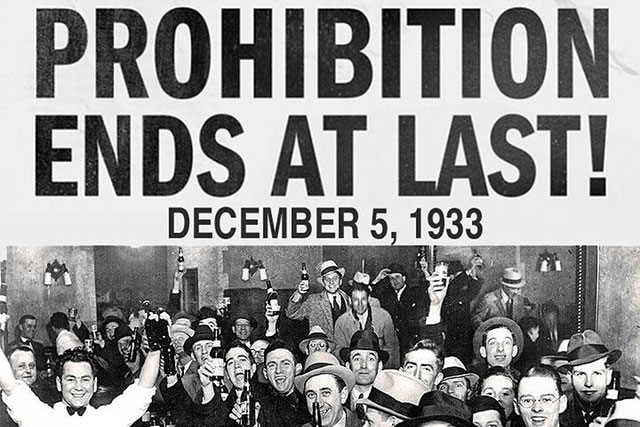On December 5, crowds cheered as the 21st Amendment was ratified. This Amendment repealed the previous prohibition of alcohol in the 18th Amendment.
The prohibition barred the manufacture and sale of intoxicating liquors in order to ensure that there was enough food while World War I took place. The decision to repeal It was seen as necessary to legalize alcohol in the country as the drinking of unregulated causes caused the death of tens of thousands of people.
This repeal of the 18th Amendment brought about positive changes throughout the country, such as adult citizens being granted the freedom to drink legally. The new act saw a reduction in crime rates and fewer people dying due to the regulation of alcohol.
A New York socialite named Pauline Morton Sabin was the one who brought about the prohibition in the first place. Later she took a step on her decision by bringing the prohibition to an end. One of the main reasons it was repealed was due to the crash of the stock market, which ensued in the Great Depression.
The country was desperate for money at this point and saw where they could gain money by implementing an income tax. This meant that there would be no need to collect money on the sale of liquor.
Franklin D. Roosevelt promoted a campaign promising the citizens the legalization of drinking. Thus the 21st Amendment came into effect on the 5th of December 1933, in the same light as overturning the 18th Amendment.

